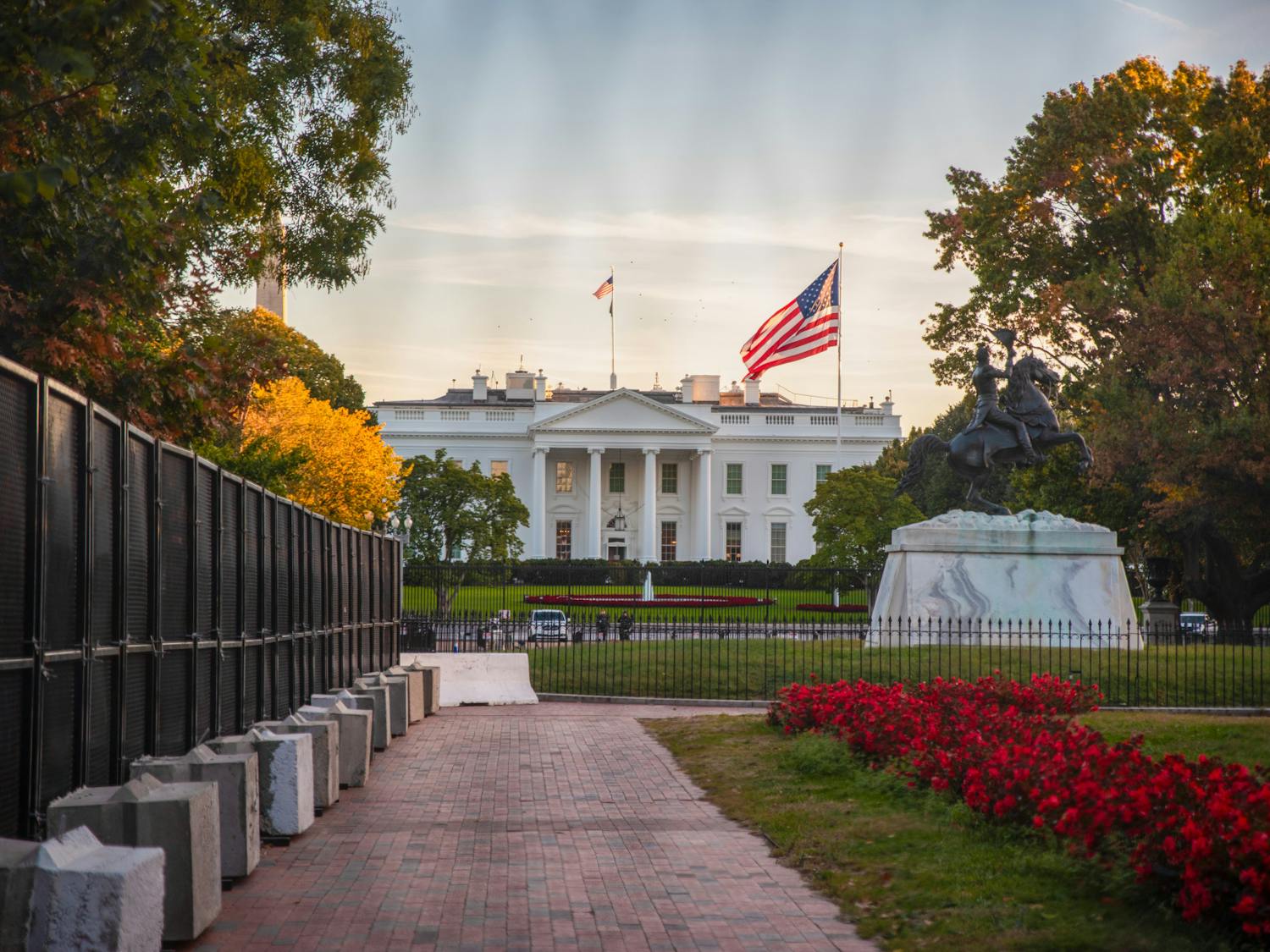Earlier this month, the Penn Admissions Office and the student-led Kite and Key Society debuted live, student-led, virtual tours. The live virtual tour is the first of its kind in the Ivy League.
Students can register for the 30-minute live virtual tours on the Penn Admissions website, which are offered twice a week, on Tuesdays at 10:30 a.m. EDT and Thursdays at 3 p.m. EDT throughout May. The tours will begin running up to five days a week in June, Kite and Key president and rising Engineering senior Sofia Gonzalez said.
Kite and Key vice president and rising Wharton senior Rhea Nangia said many peer institutions have launched virtual info sessions with admissions officers, as well as virtual tours, but Penn is one of the few to roll out a live virtual tour.
The live virtual tour is the latest addition to a developing list of online resources for prospective and incoming students looking to learn about the University, without being able to travel to Penn amid the coronavirus pandemic.
The University's new virtual tour was rolled out earlier this year, Gonzalez said. The virtual tour features voiceovers by Kite and Key tour guides, a 360-degree view of campus at each tour stop, and links to additional campus resources.
Gonzalez said the spread of the coronavirus prompted the University to “leverage [the virtual tour] in order to reach everybody [who wants to tour campus]" in the form of a live, interactive experience.
Each tour is capped at 50 students, and led by two Kite and Key tour guides and up to four admissions officers to ensure all questions asked through the Zoom platform’s chat feature are answered, Gonzalez said.
As the tours are conducted through Zoom webinars, the attendees cannot see one another, and the tour guides cannot see the attendees, which Nangia recognized was a shortcoming of the tour, but one that was inevitable for any virtual program.
RELATED:
While colleges struggle to fill Class of 2024, Penn has not yet increased waitlist admissions
Penn admits 8.07% of applicants to the Class of 2024, a slight uptick from last year
Penn's RD applications drop by nearly 3,000 for the Class of 2024, a year after record high
“Obviously, nothing will replace actually being on campus and having that live experience where you actually get to know your tour guide for an hour and a half and interact with the students,” Nangia said. “But I think this is our best way to show them what campus looks like, and give them some sort of ability to connect with a student, which you don’t get in just an info session.”
She added that the tour guides have the opportunity to share their personal emails at the end of the tour so students can continue to connect with them and ask questions at any point.
The tours are available for students of all ages, according to Nangia, and are not the direct replacement of Quaker Days, which was canceled due to the coronavirus. She added that there was programming specifically created for accepted students, including virtual student panels on various topics such as academic life, diversity, and extracurricular activities, with each webinar garnering around 500 students.
Even with this previous virtual programming, several incoming first years are taking advantage of the live virtual tours.
Incoming College first-year Augustin Liu had visited campus prior to committing, but took the live virtual tour to learn more about Penn. While he found it helpful, he said it was hard to fully appreciate the University from behind a computer screen, due to his inability to observe the campus atmosphere and student dynamic.
“If I had not visited in person, I don’t think I would have felt as [positively] as I do about Penn,” he said. “For students who have not visited, I think it would be harder to convince them to come over a cheaper alternative or alternatives they had visited before.”
Incoming College first-year Kai Kelly faced this exact challenge. As a regular decision applicant who was unable to visit Penn’s campus before committing, the virtual tour was a large factor in her decision to commit to Penn.
“What really made Penn’s tour stand out to me were the individual stories that were interspersed throughout the tour. It really humanized Penn as an institution,” she said.
In early 2019, Kite and Key adopted a new approach to giving tours, which places a priority on personal experiences and student life rather than stating facts about the University or its admissions statistics, Gonzalez said.
Kelly added that Penn, unlike other institutions she was deciding amongst, provided a lot of support as she worked to make a final decision. Both her alumni interviewer from the application process and an admissions representative reached out to her, offering answers to any questions she had in order to help better inform her decision.
“During this time of uncertainty, it’s easy to feel like you’re alone or nonexistent,” she said. “Penn reaching out definitely made me feel like an individual, and an important one at that, which is helpful and definitely necessary at this time.”
Associate Director of the Visit Experience at Penn Admissions Tommy Bergstrom expressed his enthusiasm for the new touring experience, and his thanks to the Kite and Key Society for its commitment to providing tours in these unprecedented times.
“It’s very exciting to offer this new opportunity for folks around the world to experience campus and engage with current students in a meaningful way,” Bergstrom wrote in an emailed statement to The Daily Pennsylvanian. “We are incredibly grateful for the Society’s continued dedication to [its] mission and unwavering sense of volunteerism.”









